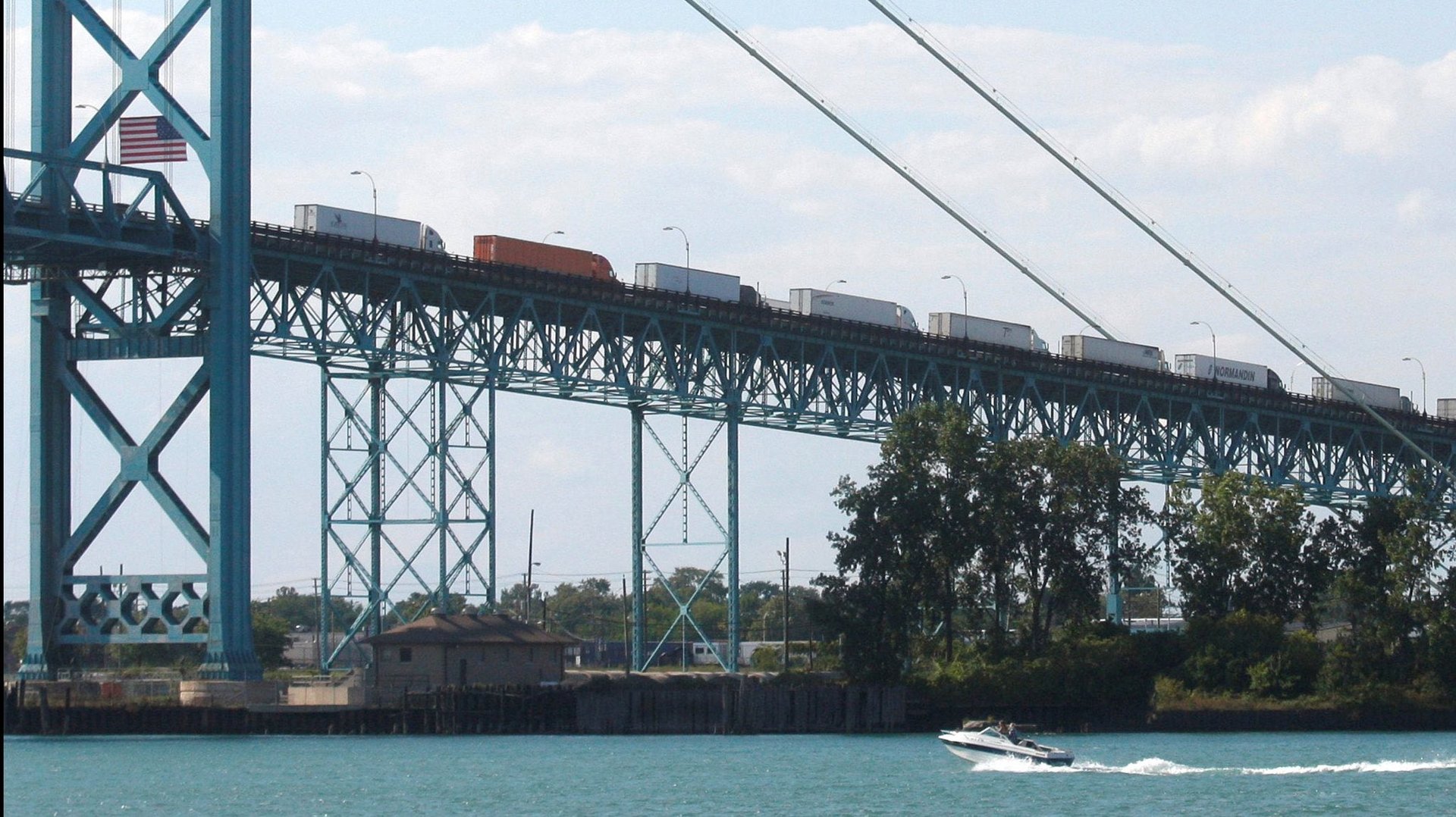What would happen if Trump did pull the US out of Nafta?
US president Donald Trump loves to bash Nafta, or the North American Free Trade Agreement. He’s called it the worst trade deal ever signed by the US and a “disaster.” On April 26, he appeared ready to tear it up, as he’s promised many times, through an executive order. He’s since said he will keep the treaty, for now:


US president Donald Trump loves to bash Nafta, or the North American Free Trade Agreement. He’s called it the worst trade deal ever signed by the US and a “disaster.” On April 26, he appeared ready to tear it up, as he’s promised many times, through an executive order. He’s since said he will keep the treaty, for now:
But what would happen if he did tear it up?
Under the 23-year-old treaty, any country that wants out has to provide written notice to the other partners six months in advance. The move might also face legal and Congressional challenges. Still, the possibility that Trump might scrap Nafta eventually is real. These would be the main effects.
Higher tariffs
Nafta essentially reduced tariffs between the three countries to zero. Without it, tariffs would revert to levels under the World Trade Organization. That’s an average 7.5% tariff on American goods coming into Mexico, and as much as 150% for certain products such as meat and poultry. Mexican products, in turn, would have to pay an average 3.5% to enter the US. (Since Canada and the US had a free-trade agreement that predates Nafta, exchanges between the two countries would likely remain tariff-free.) That could put a dent on North American trade. So far this year, the US has sold Mexico and Canada $80 billion worth of goods, or a third of all its exports.
Broken supply chains
Under Nafta, companies from the three countries also started building things together, shipping components back and forth across borders before finishing a product. (Roughly 40% of the content of what the US imports from Mexico was originally made by US workers.) Those supply chains have helped manufacturers buy and produce wherever it makes the most business sense. Some of that flexibility and savings would be lost once countries start tacking tariffs on incoming goods.
More expensive goods
The lack of tariffs and the division of labor make for cheaper consumer goods. Americans should expect to pay more for Mexican imports, from flat-screen TVs to avocados.
Estranged neighbors
Though Nafta is a trade agreement, it also served as a diplomatic tool to improve relations between the signing countries. This is particularly true of the US and Mexico, which don’t have a happy history. The economic partnership made both countries more willing to cooperate on other fronts, such as immigration and border security. Mexico, for example, has been intercepting US-bound immigrants from Central America and returning them home before they reach the US border. Mexico might not be so eager to perform that kind of work in the absence of Nafta.
Trump should also brace himself for a spike in immigration from Mexico, which has been in steady decline. Killing Nafta would hurt the Mexican economy, which is heavily dependent on exports to the US. That would prompt jobless Mexicans to resume the tradition of going north.